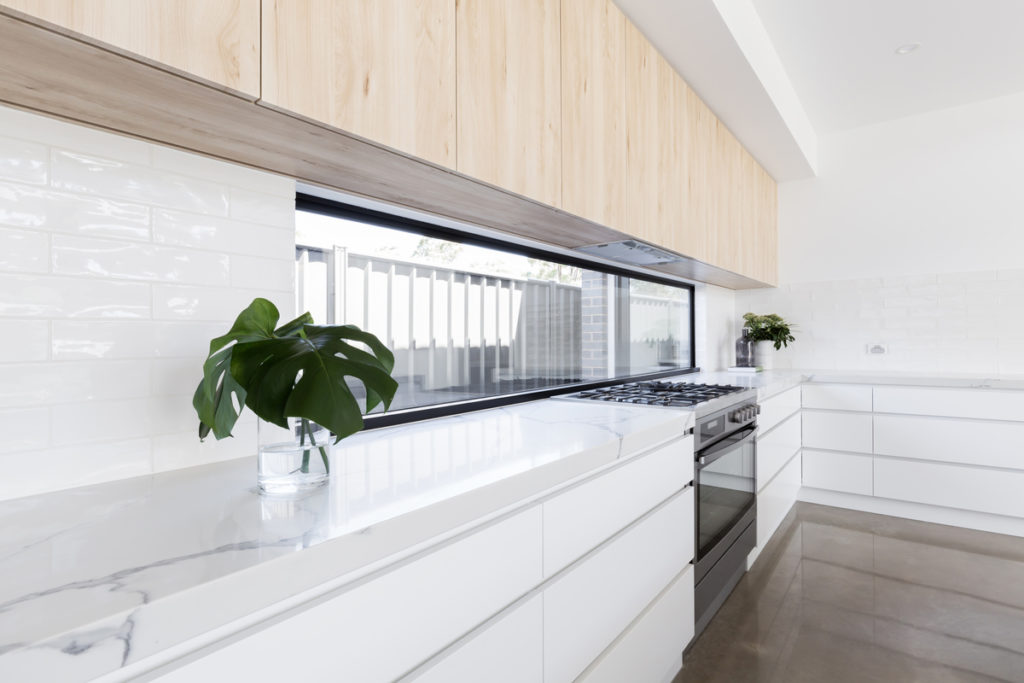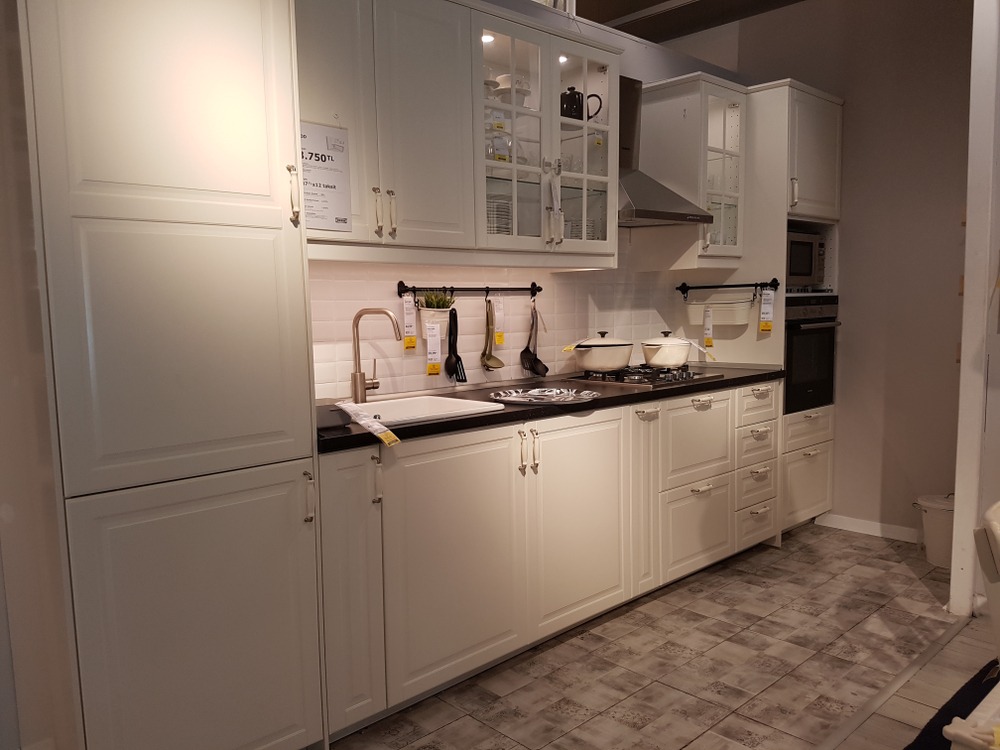
Your kitchen’s bench is a common site for a variety of activities. From preparing meals and cooking to eating and entertaining, there is no doubt that your benchtops will go through a lot. It’s wise to choose a material for your benchtop that can withstand this much activity. For many homeowners, the choice usually falls between stone or laminate as these materials are both stylish and functional. But which one is best for you?

Why laminate benchtops are a better choice
Deciding between stone or laminate kitchen benchtops can be hard. However, it’s helpful to think about what you and your family’s needs are. After all, the lifestyle that you lead will directly affect the functionality and material that you choose for your benchtops. Ask yourself a few questions. How durable do you need your benchtop to be? Is how it feels important to you? What is your budget for it?
Though stone is an impressive material for its luxe and classy look, it might not be for everyone. When renovating your home is already costly to begin with, choosing expensive materials may not be wise. If you like the look of stone on your benchtops but simply can’t justify the price, laminate can give you the same look with additional benefits. It comes in a variety of designs and can withstand a lot of wear and tear. But why else should you opt for laminate instead? Here are a few more reasons why:
1. Laminate is more affordable than stone. Simply speaking, laminate kitchen benchtops cost less than stone benchtops. For comparison, a few metres of laminate will cost a few hundred dollars while a stone or marble slab of the same size will easily cost thousands. Even if you get different quotes or choose synthetic stone instead, laminate will still come out as the most affordable option.
2. Laminate benchtops are less labour-intensive to build. Unlike stone benchtops, laminate benchtops take less time and effort to build and install. The contractors can build a foundation for the benchtop according to the specified design then cover it with the laminate. A stone benchtop will require workers to painstakingly cut a slab of stone or marble to fit the benchtop design and install it carefully.
3. Laminate is easier to maintain. Depending on the brand of laminate that you get, it can be highly stain-resistant. Generally, laminate is also quite easy to clean. While laminate can get scratched or torn over time, you can easily replace it with ease if it’s beyond repair. You may have to deal with permanent damage and disfigurement if you have stone benchtops as it’s not easy to change.
4. Laminate is more child-friendly. If you have young children who are active and love to play, laminate kitchen benchtops may be the wiser and safer option for you. Stone benchtops are quite dense, making it easy to break a few plates or glasses if your little ones are being careless. Moreover, a laminate benchtop is less likely to hurt your child if they accidentally bump into it while rough-housing.
5. Laminate has better longevity than you think. While there is a misconception that laminate won’t last long, it has the potential to last as long as 20 years. This may be nowhere near a lifetime, but it’s still an ample amount of time nonetheless. If you choose a laminate brand in a timeless design and finish, it can be on your benchtops for a long time.
6. Laminate is easier to change if you need to update it. When designing your kitchen benchtops, consider how long you’ll be staying in your current house. If you live in a rental or see yourself moving in the future, it’s easier to renovate your home if you have laminate benchtops. It’s simply easier and more affordable to commit to laminate. Additionally, the colours on stone benchtops can get dated very fast so it is more expensive to keep it current, especially if you own a rental or a hotel. If you want your property to look more on-trend as time goes by, laminate is a better option.
7. Laminate is more eco-friendly than stone. Since laminate can come in a variety of colours and finishes, the right design can mimic the look of natural stone and wood without supporting mining or illegal logging. You have less of an impact on the environment that way. Moreover, laminate is actually not made of plastic, it is paper-based and coated with resin. If you want a greener kitchen, feel free to use laminate for your benchtops, backsplashes and much more.
While giving your kitchen a stylish and modern upgrade is nice, it need not be expensive. You can still achieve the look of luxurious benchtops even if you use laminate. With the right design and the correct method of detailing, benchtops coated with laminate can end up looking contemporary and sleek.
By Ekitchens
Thanks for pointing out that laminate benchtops could last as long as 20 years. My husband and I are planning to have our kitchen renovated next month, and we want benchtops to be installed. Since we aim for a cost-effective solution, we will be sure to consider your tips.